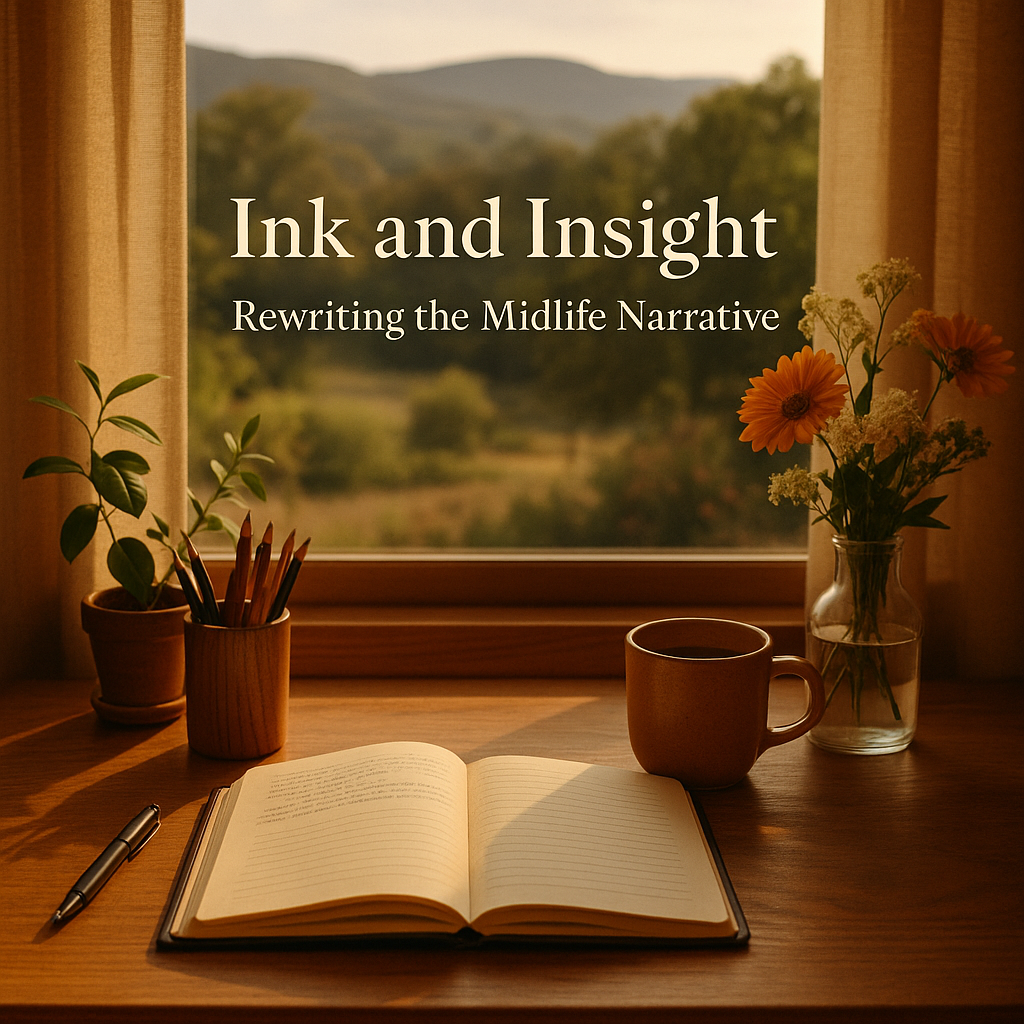Ink and Insight: Expressive Writing Community
If you're looking for a space to reconnect with yourself, strengthen your emotional well-being, and build a lifelong writing practice, you're in the right place.
Structured 8-Week Groups:
These virtual groups are designed like short courses, combining psycho-education, guided writing exercises, and optional discussion in a supportive environment. Each group is tailored to a particular age or life stage, offering a space to explore identity, transitions, decision making, problem solving, resilience, and growth. I believe expressive writing and journaling can be especially powerful for those who have not always connected with traditional talk therapy. In a world where social media and online life often pull our attention outward, a writing practice gives us a way to turn inward, reconnect with ourselves, and nurture our inner growth.
What to Expect:
Psychoeducation grounded in psychology and neuroscience, offered in a way that honors the life experience you bring.
Guided entrance meditations to help you settle into a reflective mindset.
Writing prompts (1–2 per session) that invite depth, creativity, and insight.
Reflection writing to highlight key learnings and clarify action steps.
Group discussion to reduce isolation, foster community, and learn from shared experiences.
A small group size (capped at 6-8 participants) to ensure space for each voice and meaningful participation.
Optional homework assignments for those who want to keep writing during the week
Why It’s Valuable:
Introduces you to a wide variety of writing practices that you can carry forward in your life
Builds self-awareness, emotional regulation, and resilience through evidence-based journaling approaches.
Combines the solitary benefits of journaling with the healing connection of a group.
Offers a progression of sessions that foster safety, cohesion, and growing insight over time.
Support you in developing greater self-clarity, especially important in midlife, a period often marked by transitions and reassessment, and then bringing those insights into meaningful conversation with others.
New Groups Starting in November!
Fridays 10am- 11:15am
Mondays 6:30pm -7:45pm
This virtual 8-week group for adults in midlife offers a structured yet supportive space to explore yourself and navigate transitions through expressive writing. Each week centers on a theme:
Inside the Mind: Awareness of Thoughts
Sound and Sensation: Connecting with Emotions
Stepping Stones: Writing Through Memories
Captured Moments: Grounding with the Five Senses
Parts on the Page: Writing Inner Dialogues
What We Carry: Unpacking and Repacking
Crossroads: Decisions and Problem Solving
From Words to Intentions: Carrying the Journey Forward
Join me in discovering the power of your own words.
*Groups are $400 for the series
* Sliding scale available based on need. Contact me to discuss
A Group for Early Adulthood
Daytime and Evening groups available.
A virtual group for adults in their 20s and early 30s who are navigating the complexities of early adulthood—including identity formation, relationship dynamics, career choices, and the push toward independence.
Inside the Mind: Awareness of Thoughts
Sound and Sensation: Connecting with Emotions
Stepping Stones: Writing Through Memories
Captured Moments: Grounding with the 5 Senses
Parts on the Page: Writing Inner Dialogues
True North: Mapping the Compass Within
Crossroads: Decisions and Problem Solving
From Words to Intentions: Carrying the Journey Forward
Community Writing Circle:
This virtual community writing circle is a space to come as you are. No preparation, no experience needed. We meet biweekly to write, reflect, and connect through gentle prompts and supportive conversation. Whether you’re looking for creative nourishment, emotional grounding, or simply a place to breathe and be heard, you are warmly welcome.
Wherever you are on your journey, there is a place here for your voice. You are welcome to drop in for a session or attend regularly.
Ready to begin? I'd love to write with you. Email me to join.
How Journaling Can Rewire Your Brain and Improve Mental Health
Did you know that writing in a journal can actually change your brain? It’s true! Neuroscience shows that expressive writing helps your brain form new connections, making it easier to process emotions, reduce stress, and gain clarity on your thoughts. This happens because of neuroplasticity, which is your brain’s ability to adapt and rewire itself based on new experiences.
When you write about your feelings, whether it’s reflecting on a tough situation, exploring a past memory, or imagining your future—it activates parts of the brain that help with emotional regulation and problem-solving. Specifically, journaling strengthens the connection between the part of your brain that processes emotions (the amygdala) and the part that helps you think logically and make decisions (the prefrontal cortex). This makes it easier to manage stress, reduce overthinking, and gain perspective.
Writing also helps you create a more cohesive personal story, which can improve self-awareness and reduce mental clutter. Studies show that journaling can even lower stress hormones, improve sleep, and boost overall well-being. Plus, when you write about your future as if you’ve already achieved your goals (future-oriented journaling), your brain releases dopamine, the “motivation” chemical, which can actually help you feel more confident and driven.
So, if you’re feeling stuck, anxious, or just overwhelmed with thoughts, writing them down isn’t just venting. It’s helping your brain rewire itself in a healthier way. The more you do it, the more you train your mind to work for you, not against you.
Expressive Writing and Journaling can be integrated into psychodynamic/psychoanalytic therapy as an added way of helping patients develop insight, coping skills, emotional regulation and problem solving. Research shows that it can:
Help people create a narrative of their life while focusing on “stories that heal” instead of “stories that wound”
Enable people to develop insight by organizing their thoughts and help create a more cohesive understanding of themselves and the situations they are in
Allow people to create goals and track/monitor their progress
Provide an emotional release which can improve physical health and immune system functioning
Emphasize the importance of using positive words and positive thoughts to improve health and self-esteem
Allow people to notice the change in their emotions, even from the beginning to end of a journal entry or writing prompt
Facilitate the development of new neural pathways!


